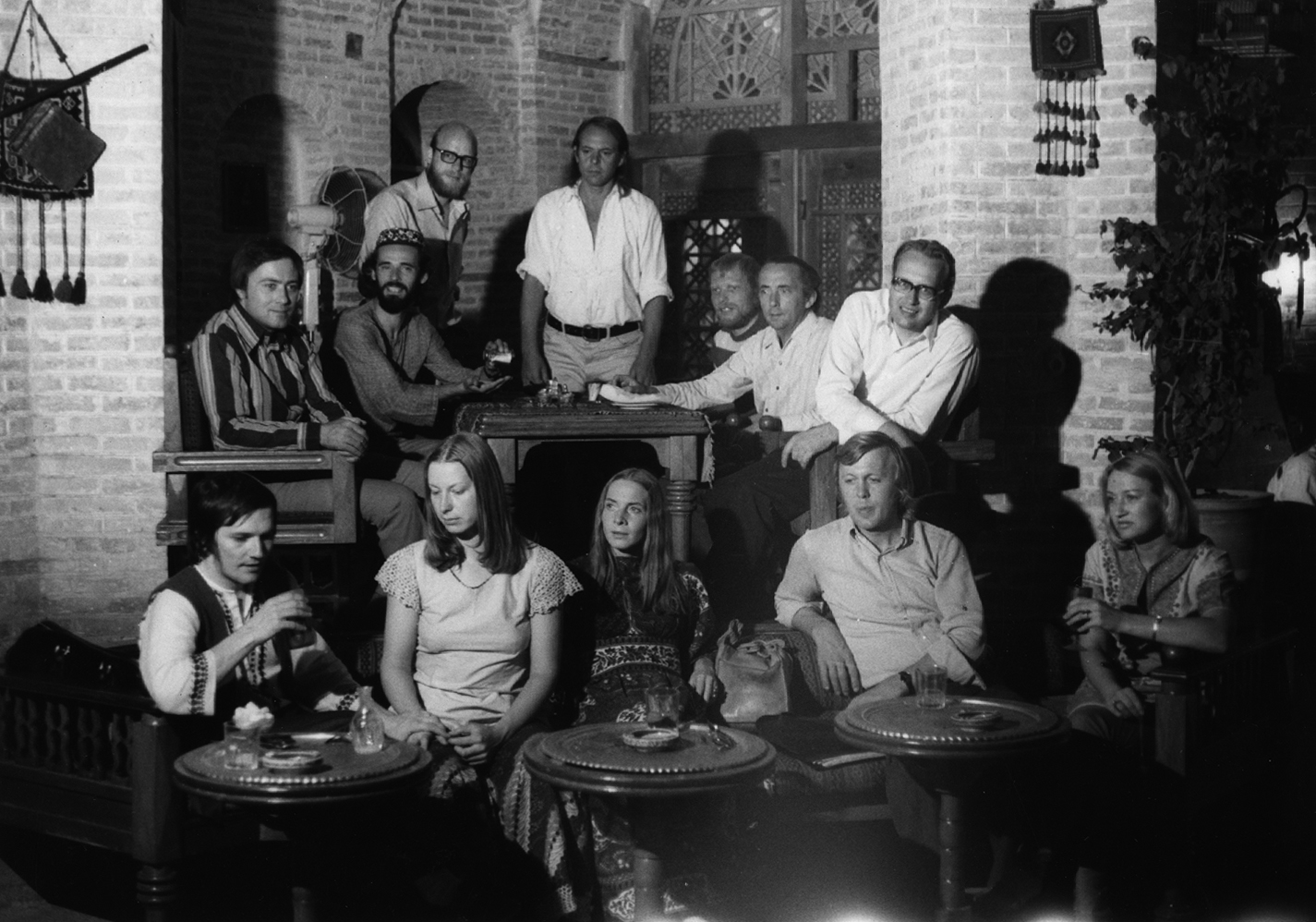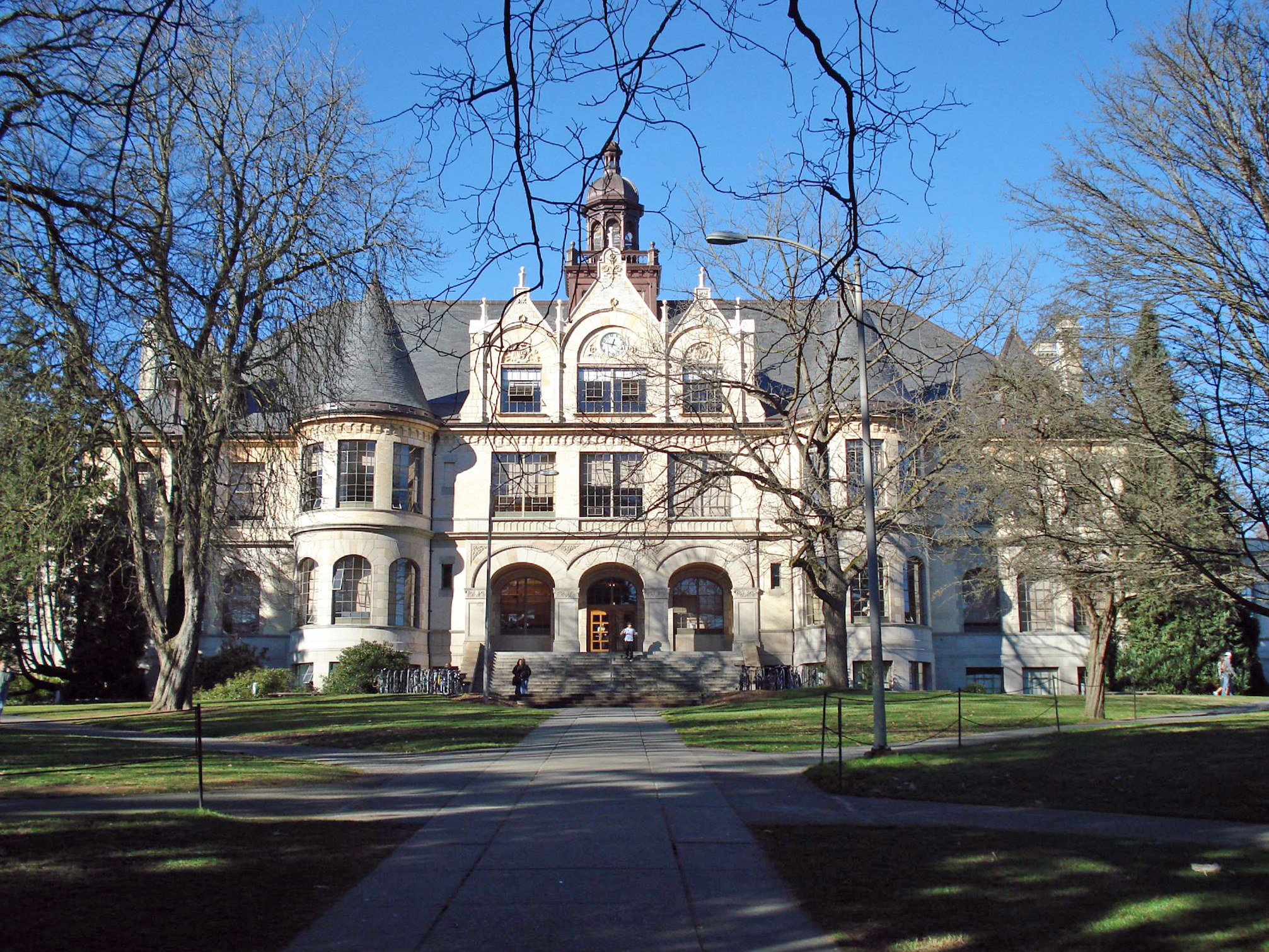|
Prozession
''Prozession'' (Procession), for tamtam, viola, electronium, piano, microphones, filters, and potentiometers (six performers), is a composition by Karlheinz Stockhausen, written in 1967. It is Number 23 in the catalogue of the composer's works. Conception ''Prozession'' is one of a series of works dating from the 1960s which Stockhausen designated as "process" compositions. These works in effect separate the "form" from the "content" by presenting the performers with a series of transformation signs which are to be applied to material that may vary considerably from one performance to the next. In ''Prozession'', the performers choose material from specific earlier compositions by Stockhausen. In the subsequent companion works, '' Kurzwellen'' for six performers, '' Spiral'' for a soloist, ''Pole'' for two, and ''Expo'' for three, this material is to be drawn spontaneously during the performance from short-wave radio broadcasts. The processes, indicated primarily by plus, minus, and ... [...More Info...] [...Related Items...] OR: [Wikipedia] [Google] [Baidu] |
Process Music
Process music is music that arises from a process. It may make that process audible to the listener, or the process may be concealed. Primarily begun in the 1960s, diverse composers have employed divergent methods and styles of process. "A 'musical process' as Christensen defines it is a highly complex dynamic phenomenon involving audible structures that evolve in the course of the musical performance ... 2nd order audible developments, i.e., audible developments within audible developments". These processes may involve specific systems of choosing and arranging notes through pitch and time, often involving a long term change with a limited amount of musical material, or transformations of musical events that are already relatively complex in themselves. Steve Reich defines process music not as, "the process of composition but rather pieces of music that are, literally, processes. The distinctive thing about musical processes is that they determine all the note-to-note (sound-to ... [...More Info...] [...Related Items...] OR: [Wikipedia] [Google] [Baidu] |
Karlheinz Stockhausen
Karlheinz Stockhausen (; 22 August 1928 – 5 December 2007) was a German composer, widely acknowledged by critics as one of the most important but also controversial composers of the 20th and early 21st centuries. He is known for his groundbreaking work in electronic music, for introducing controlled chance ( aleatory techniques) into serial composition, and for musical spatialization. He was educated at the Hochschule für Musik Köln and the University of Cologne, later studying with Olivier Messiaen in Paris and with Werner Meyer-Eppler at the University of Bonn. One of the leading figures of the Darmstadt School, his compositions and theories were and remain widely influential, not only on composers of art music, but also on jazz and popular music. His works, composed over a period of nearly sixty years, eschew traditional forms. In addition to electronic music—both with and without live performers—they range from miniatures for musical boxes through works for s ... [...More Info...] [...Related Items...] OR: [Wikipedia] [Google] [Baidu] |
Spiral (Stockhausen)
''Spiral'' (Spiral dj. Spirally), for a soloist with a shortwave receiver, is a composition by Karlheinz Stockhausen, written in 1968. It is Number 27 in the catalogue of the composer's works. Conception ''Spiral'' is one of a series of works dating from the 1960s which Stockhausen designated as "process" compositions. These works in effect separate the "form" from the "content" by presenting the performers with a series of transformation signs which are to be applied to material that may vary considerably from one performance to the next. In ''Spiral'' and three companion works ('' Kurzwellen'' for six performers, ''Pole'' for two, and ''Expo'' for three), this material is to be drawn spontaneously during the performance from shortwave radio broadcasts. The processes, indicated primarily by plus, minus, and equal signs, constitute the composition and, despite the unpredictability of the materials, these processes can be heard from one performance to another as being "the same". ... [...More Info...] [...Related Items...] OR: [Wikipedia] [Google] [Baidu] |
Pole (Stockhausen)
''Pole'' (Poles), for two performers with shortwave radio receivers and a sound projectionist, is a composition by Karlheinz Stockhausen, written in 1970. It is Number 30 in the catalogue of the composer's works. Conception ''Pole'' is the last in a series of works dating from the late 1960s which Stockhausen designated as " process" compositions. These works in effect separate the "form" from the "content" by presenting the performers with a series of transformation signs which are to be applied to material that may vary considerably from one performance to the next. In ''Pole'' and three companion works (''Kurzwellen'' for six performers, ''Spiral'' for a soloist, and ''Expo'' for three), this material is to be drawn spontaneously during the performance from shortwave radio broadcasts. The processes, indicated primarily by plus, minus, and equal signs, constitute the composition and, despite the unpredictability of the materials, these processes can be heard from one performance ... [...More Info...] [...Related Items...] OR: [Wikipedia] [Google] [Baidu] |
Expo (Stockhausen)
''Expo'', for three performers with shortwave radio receivers and a sound projectionist, is a composition by Karlheinz Stockhausen, written in 1969–70. It is Number 31 in the catalogue of the composer's works. Conception ''Expo'' is the penultimate in a series of works dating from the late 1960s which Stockhausen designated as "process" compositions. These works in effect separate the "form" from the "content" by presenting the performers with a series of transformation signs which are to be applied to material that may vary considerably from one performance to the next. In ''Expo'' and three companion works (''Kurzwellen'' for six performers, ''Spiral'' for a soloist, and ''Pole'' for two), this material is to be drawn spontaneously during the performance from short-wave radio broadcasts. The processes, indicated primarily by plus, minus, and equal signs, constitute the composition and, despite the unpredictability of the materials, these processes can be heard from one performa ... [...More Info...] [...Related Items...] OR: [Wikipedia] [Google] [Baidu] |
Rolf Gehlhaar
Rolf Rainer Gehlhaar (30 December 1943 – 7 July 2019), was an American composer, Professor in Experimental Music at Coventry University and researcher in assistive technology for music. Life Born in Breslau, Gehlhaar was the son of a German rocket scientist, who emigrated to the United States in 1953 to work at a rocket-development research centre in New Mexico. Although he took an interest in music from the age of eight or younger, in the post-war years the family could not afford for him to learn an instrument, and so Rolf only began to play the piano at the age of fifteen, and at about the same time began to compose for fun. He took American citizenship in 1958 and studied at Yale University and the University of California, Berkeley. Initially, he had studied medicine, but soon changed his major to philosophy and the philosophy of science; then at Yale he attended a course in composition, which was an arousing experience. He moved to Cologne, Germany, in 1967 to become assist ... [...More Info...] [...Related Items...] OR: [Wikipedia] [Google] [Baidu] |
Dieter Schnebel
Dieter Schnebel (14 March 1930 – 20 May 2018) was a German composer, theologian and musicologist. He composed orchestral music, chamber music, vocal music and stage works. From 1976 until his retirement in 1995, Schnebel served as professor of experimental music at the Hochschule der Künste, Berlin. Career Schnebel was born in Lahr/Baden. He began general private music studies with Wilhelm Siebler from 1942 until 1945, when he started piano lessons with Wilhelm Resch, and continued study with him until 1949 at the age of 19. He continued with music history through 1952, under Eric Doflein. Simultaneously he began to study composition, from 1950, with Ernst Krenek, Theodor W. Adorno and Pierre Boulez, among others. He entered formal studies at the University of Tübingen where he took musicology with Walter Gerstenberg, as well as theology, philosophy and further piano studies. In 1955, he left with a degree in theology, but with a dissertation about Arnold Schoenberg. Soon aft ... [...More Info...] [...Related Items...] OR: [Wikipedia] [Google] [Baidu] |
Péter Eötvös
Péter Eötvös ( hu, Eötvös Péter, ; born 2 January 1944) is a Hungarian composer, conductor and teacher. Eötvös was born in Székelyudvarhely, Transylvania, then part of Hungary, now Romania. He studied composition in Budapest and Cologne. From 1962, he composed for film in Hungary. Eötvös played regularly with the Stockhausen Ensemble between 1968 and 1976. He was a founding member of the Oeldorf Group in 1973, continuing his association until the late 1970s. From 1979 to 1991, he was musical director and conductor of the Ensemble InterContemporain (EIC). From 1985 to 1988, he was principal guest conductor of the BBC Symphony Orchestra. Early life As a child, Eötvös received a thorough musical education, including works by Béla Bartók. He felt a strong link between Hungarian grammar and Bartók's music, claiming that the specific "Hungarian" interpretations of music by Bartók and Kodály (as well as other Hungarian conductors such as Szell, Fricsay, Ormandy, ... [...More Info...] [...Related Items...] OR: [Wikipedia] [Google] [Baidu] |
Perspectives Of New Music
''Perspectives of New Music'' (PNM) is a peer-reviewed academic journal specializing in music theory and analysis. It was established in 1962 by Arthur Berger and Benjamin Boretz (who were its initial editors-in-chief). ''Perspectives'' was first published by the Princeton University Press, initially supported by the Fromm Music Foundation.David Carson Berry, "''Journal of Music Theory'' under Allen Forte's Editorship," ''Journal of Music Theory'' 50/1 (2006), 21, n49. The first issue was favorably reviewed in the ''Journal of Music Theory'', which observed that Berger and Boretz had produced "a first issue which sustains such a high quality of interest and cogency among its articles that one suspects the long delay preceding the yet-unborn Spring 1963 issue may reflect a scarcity of material up to their standard". However, as the journal's editorial "perspective" coalesced, Fromm became—in the words of David Gable—disenchanted with the "exclusive viewpoint hatcame to dominate" ... [...More Info...] [...Related Items...] OR: [Wikipedia] [Google] [Baidu] |
Jerome Kohl
Jerome Joseph Kohl (November 27, 1946 – August 4, 2020) was an American musicologist, academic journal editor, and recorder teacher. A music theorist at the University of Washington, he became recognized internationally as an authority on the music of Karlheinz Stockhausen. Kohl was also a contributor at Wikipedia (a "Wikipedian"). Life and work Kohl grew up in Lincoln, Nebraska, with three siblings. During high school and college, he played the clarinet in the local symphony orchestra. He received his undergraduate, and in 1971, his master's degree in music from the University of Nebraska. Drafted into the army, he played in an army band during the Vietnam War. Afterwards, he started his doctoral studies in music theory at the University of Washington in Seattle. In the 1970s, Kohl joined the Seattle Recorder Society, attending and running classes at their meetings, as well as teaching privately. In 1976, Kohl co-founded and became the board president of the Early Music Guil ... [...More Info...] [...Related Items...] OR: [Wikipedia] [Google] [Baidu] |
Robin Maconie
Robin John Maconie (born 22 October 1942) is a New Zealand composer, pianist, and writer. Born in Auckland, New Zealand, Maconie studied with Frederick Page and Roger Savage at the Victoria University of Wellington, receiving a Master of Arts in the History and Literature of Music in 1964. He studied analysis with Olivier Messiaen in 1963–64 at the Paris Conservatoire, and in 1964–65 studied composition for film and radio under Bernd Alois Zimmermann, and electronic music under Herbert Eimert at the Cologne Conservatory. He also studied composition with Karlheinz Stockhausen, Henri Pousseur, and Luc Ferrari at the Second Cologne Courses for New Music at the , also in Cologne, as well as piano with Aloys Kontarsky, conducting with Herbert Schernus, and information science with Georg Heike. Following a temporary lectureship at the University of Auckland, New Zealand, in 1967–69, Maconie emigrated to England to study for a Ph.D in the Psychology of Music at Southampton Univers ... [...More Info...] [...Related Items...] OR: [Wikipedia] [Google] [Baidu] |
Reinhold Brinkmann
Reinhold Brinkmann (21 August 1934, Wildeshausen, Oldenburg, Lower Saxony – 10 October 2010, Eckernförde, Rendsburg-Eckernförde, Schleswig-Holstein) was a German musicologist. Brinkmann was born in Wildeshausen and studied at Freiburg im Breisgau. His dissertation was about Arnold Schönberg's Klavierstücke op. 11. He started working on the faculty of Freie Universität Berlin in 1970. From 1972 to 1980 he taught at Philipps-Universität Marburg, and then until 1985 again in Berlin, at the Universität der Künste Berlin. After 1985 he taught at Harvard University, as the James Edward Ditson professor, and chair of the department of music. In 2001 he was honored with the Ernst von Siemens Music Prize. In 2006 he was elected Honorary Member of the American Musicological Society. His research has included widely diverse publications in all areas of music theory and history from the 18th to the 20th centuries, with particular emphasis on interdisciplinary aspects. His writings e ... [...More Info...] [...Related Items...] OR: [Wikipedia] [Google] [Baidu] |






